It’s Saturday night at Otherlands Coffee Shop. The space looks about the same as it has for the past decade of weekend concerts. A small group of people drinking lattes or craft brews sits around the eclectically shellacked tables while Julien Baker takes the makeshift stage with her baby blue electric Fender. Behind Baker, plate-glass windows are beading with rain. Brake lights from passing vehicles roll over the room, the glare catching the metal plating of her guitar.
It has been a standard evening so far, as coffee-house singer-songwriter sessions go. A folk duo has played a few by-the-book ballads. People are talking quietly. But when Baker takes the mic — her guitar affixed to her tiny frame with a rainbow strap — the atmosphere of the place changes. It’s hard to say what exactly does it. Baker is five feet tall and looks, by her own admission, to be about 12 years old, though she turned 20 in September. She wears an unremarkable blue jacket and gray t-shirt, a look she has described in interviews as “level-one RuneScape clothes.” She’s up there alone.
Baker begins her set with a single guitar note, held for a long moment before she begins, in a quiet and urgent alto — “Do you think that there’s a way this could ever get too far?” — covering the question with reverb before abandoning it. “I know I saw your hand,” she continues, “when I went out and wrapped my car around the streetlamp.” She pronounces streetlamp sweetly, drawing it out, the way you’d fixate on something you loved.
The lyric is a reference to the time, when Baker was 17, that she drove her car off the road, shattering the windshield enough so that she was unable to see as a 25-foot-tall light pole crashed towards her. The concrete post split Baker’s car cleanly in two but somehow left her entirely untouched.
“Blacktop” — which will be the first track on her debut solo album, due out October 23rd — is a lonely song, maybe her loneliest, though it has some strong competition. When she asks, in the next verse, that some intervening divine, the same that saved her life, “come visit me in the back of an ambulance,” it is with the longing of something barely missed, rather than any certainty in her good fortune.
 Andrea Morales
Andrea Morales
The feel at Otherlands, as Baker earnestly continues her set, gives definition to the phrase, “you could hear a pin drop.” If people were not paying attention before, they are now. Previously unremarkable environmental details — the rain outside and the hush of the room — seem pulled into Baker, collapsed into her intimate, pining music.
If VH1 ever makes a Behind the Music: Julien Baker, it will play out something like this: A small girl with a big voice grows up in the far suburbs of Memphis. She works a night shift through high school, spends her free time hanging out at the skatepark; she smokes cigarettes, plays hymns at her small church, and figures out an electric guitar in her dad’s living room. She forms a punk band with her friends. They call themselves “The Star Killers” and play all-ages shows in community centers and neighborhood pool houses. She gets a girlfriend, gets into drinking, gets some dumb tattoos. Starts touring when she isn’t in school. Applies herself. Makes it to state college, where she records a lonely record. The record is really good. People hear the record, share the record, and she gets signed. What’s next is history.
At least, it seems like that will be the case, if recent articles comparing Baker and her forthcoming solo album to Rilo Kiley or Natalie Prass and calling her music “equal parts agony and burgeoning wisdom” (NPR), “crushing” (Stereogum), “wise” (Vulture),”a study in contradiction, both fragile and steely at the same time” (Nylon) are on to anything.
Morgan Jon Fox, the Memphis filmmaker, describes hearing Baker’s music for the first time this way: “This very gentle young woman stepped up and started playing these songs, and it was one of these moments in life that genuinely felt golden, when you see something that is so special, and so fragile, that is just on the precipice of taking off.”
Fox went on to use selections from Baker’s forthcoming album throughout his most recent project, a miniseries called Feral, and cites it as perhaps his foremost influence for the project. “I got obsessed with it,” he says. “I listened to it while I was writing and in the car while I was finding locations. It’s lyrically just very wise beyond her years.”
It is easy to talk about the precocity of Baker’s music, since she is young, but just talking about the precocity makes it seem as if Baker is a 5-year-old playing sonatas to an auditorium. The image doesn’t convey how moving songs like “Blacktop” or “Go Home” (“The side of the road in a ditch when you find me,” sings Baker, “… more whiskey than blood in my veins”) are, and how Baker’s particular talents are as much emotional as they are technical.
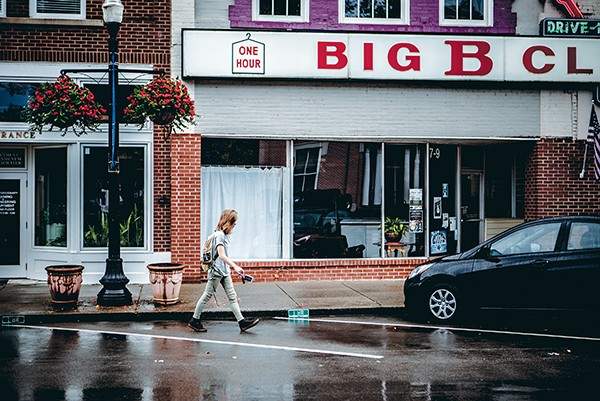 Andrea Morales
Andrea Morales
Downtown Murfreesboro, near Baker’s favorite record shop
“I’ve never really encountered somebody who has the ability to resonate so broadly with their songs,” says Sean Rhorer, whose label, 6131 Records, will release Baker’s debut. “I posted about it on Facebook, and my mom responded to it,” he laughs. “But then, dudes in punk bands who are associated with us are all about it as well. For me personally, it’s like I’ve listened to a song of hers 200 times and on the 200th time I am just in my car weeping. She has that ability.”
Pending the release of “Sprained Ankle” in the next week, Baker is doing what she usually does: going to class at Middle Tennessee State University, where she is studying to be an English teacher. She started school as a recording engineering major, but quit the program after a professor told her that if he was going to teach the class one thing, it would be to “take their passion and monetize it.”
“I guess I just believe in the lyceum model of education,” she told me when we met in Murfreesboro on a weekend in early September. “I think you should educate to build your intellect, not to make money.”
In the past few months, Baker has flown to Los Angeles to shoot a music video and to Richmond, Virginia, to record at Matthew E. White’s Spacebomb Studios, the same studio that produced Natalie Prass’ debut album.
She’s been on the radio, toured to New York, and played around 20 shows, both as Forrister and as Julien Baker. She’s currently keeping it together by drinking copious amounts of what she calls “AA-meeting coffee”, meaning the strong stuff (Baker is now sober by choice). When we met, I noticed that her hands were marked up with scribbled English assignments and Sharpied X’s for being underage from the two gigs she’d played in Memphis that week, driving the four hours back to MTSU in the early hours of the morning.
 Andrea Morales
Andrea Morales
Baker in her room in Murfreesboro, where she studies literature
A year and a half ago, if you’d asked Baker whether she’d be trying to balance a burgeoning career and travel schedule with her schoolwork, she would have looked at you like you were crazy. The songs that make up her album were recorded as a one-off, a side project while she was away from her band. She illustrated the album cover and released it for free on Bandcamp. She didn’t think much of it. “Whatever happened with it, I was like, oh, cool,” Baker says.
People quickly started to share the album, including a video version of her song, “Something” — shot in a Memphis parking garage by local filmmaker Breezy Lucia — but it wasn’t until Rhorer and 6131 contacted her about a record deal that she realized what was happening. On her new label’s advice, she took the record down from Bandcamp until it could be mastered and formally released.
A favorite mantra of Baker’s comes from the high school days she spent around D.I.Y. house venue and record label, Smith7. “Let’s all fail together,” she repeated, as we drove around Murfreesboro. “At least we’ll have each other.”
The Smith7 shows were put on exclusively as benefits for charity; records produced without hope of material recompense. “We called it investing in people,” says Brian Vernon, the founder and backbone of the label, which has produced locally-familiar bands like Wicker, The Holiday, and Nights Like These.
It was a scene that taught Baker to be wary of the parts of the music industry that can, as she phrases it, “put best things to meanest use.” (A quote from Paradise Lost: “O little knows / Any, but God alone, to value right / The good before him, but perverts best things / to worst abuse, or to their meanest use.”)
But Baker is quick to acknowledge how fortunate she is at the moment; how, not that long ago, even this starter level of success seemed a distant hope. “Being able to support yourself with your art — that’s the dream, you know?” Baker mused. She sounds both hesitant and excited. “It sunk in for me when I was able to hand my roommate utility and rent [money]. I was like, ‘Wow, that’s real.'”
At Otherlands, Baker introduces herself this way: “I’m Julien, and I don’t mean to bum you out. That’s just the kind of songs I write.” She smiles and pushes back her messy blonde hair from her face, a tic. “You know, you sing about it, and you exorcise it.”
A guess at why the 20-year-old’s songs are so broadly resonant: They all take place at a familiar, perhaps universal moment of surrender. People connect with it. Her surrender is manifold — laid at the feet of the audience, an ex-girlfriend who left her in a parking lot (“I should have said something,” sings Baker, “but I couldn’t find something to say”), the friend who once picked her up as a teenager, drunk and lost, from the side of a highway, or an invisible God. She always starts slow, voice drawn out over echoey guitar. As the song builds, she allows for considerable tension, enough space left between verses that you think she might turn away or give up at any time.
But then there always is a moment, about halfway through, where it’s as if she makes an unannounced decision that this one is all or nothing, and suddenly she is pure energy. When you see her perform, I swear there is a point when she opens her mouth — I mean really opens it — and she appears to grow three sizes. “Like one of those little styrofoam things you put in water and then they get huge,” Morgan Jon Fox laughingly agrees. This shift is her simultaneous will-to-power and an invocation for the listeners to join her. She is no longer suffering alone.
The lyrical loneliness is variously romantic and existential, sometimes within the same breath. Baker, who says she “played the worship circuit” in high school, makes music about God, but is not a Christian musician, to the extent that Christian music is a well-defined and (in my heretical opinion) musically underwhelming genre. There are Christian music labels and Christian music festivals, and Baker is not a part of that scene, though she likes Underoath and Pedro the Lion and Manchester Orchestra — bands that have, more or less explicitly, copped to their love of Jesus. She was devastated when Mike Reynolds, the guitarist for Christian metalcore unit For Today, took to Twitter and declared, “There’s no such thing as a gay Christian.”
“Sometimes, I haven’t played that song,” she told me, referring to “Rejoice”, a tour-de-force and one of the best tracks on the forthcoming album, “because I felt I needed to hide a part of myself in order to not be made fun of.”
“Rejoice” begins with Baker wandering around her neighborhood: “Jumping the fence, veins all black. Sleep on a bench in the parking lot.” Her voice is low, almost gravelly. “Birthday,” she intones. “Call the blue lights. Curse your name when I find I’m still awake.” She continues, emphatic, underwhelmed: “choking on smoke, singing your praise” and, without much conviction, “but I think there’s a God, and he hears either way. I rejoice. And complain. I never know what to say.”
And then she backs up and basically shouts, as desperate as anything else: “I rejoice … But then why did you let them leave and then make me stay?” Her voice would break if it weren’t so strong.
The thing about it, the thing that gets me — despite the fact that I haven’t lifted up anybody’s holy name since I was in middle school and assigning sexier worship lyrics onto particularly handsome church camp counselors — is that, per Julien Baker, this shit is real as it gets. There is no pretense, no particular evangelism, just the barefaced results of a young woman who is searching. I don’t think you have to believe in anything, or come from any specific background, to respect the search, even to feel it deeply.
If there’s a mythos to suburban teens — especially punk kids from the suburbs, who, like Baker, grew up hanging out at indoor skateparks and smoking in big box parking lots — it is that they are bored. See: the Arcade Fire anthem “The Suburbs,” the chorus to which rejoinders, “We were already bored. We were already, already bored.” There’s an attendant feel — a beautiful and washed-out-in-a-basement-romance-while-smoking-weed-in-the-summertime sort of thing.
Baker does not seem bored or washed-out. Like her music, she comes off notably uncynical and deeply interested — in other people’s music, in workers’ justice (she uses her fluent Spanish to volunteer for an organization that assists immigrant laborers), in literature, in elementary education, in big questions.
“Why,” she asked me offhandedly in the middle of a conversation about Faust, a leaf-eared copy of which she keeps in her room next to a hot-pink record player, “were German writers so interested in water suicide?”
For Baker, making her music and trying to fix bad things in the world are inseparable ideas, though there is no particular proselytizing in her lyrics or sound. It is more about the hows and wheres and whos of the process. She’s a proud product of the Memphis grassroots, of the idea that you make things with your friends and do it for someone besides yourself.
And if she has a central fear about the recent attention her music has been getting, it is that she’ll have to change the way she makes music, that she won’t get to spend as much time writing with her band or crafting her own songs in basic anonymity.
“When you are in The Star Killers,” she says, “you have the liberty to do whatever you want, musically. The biggest fear is getting what you want and having it not be what you really want.”
But at Otherlands, surrounded by a crowd that the young musician has effortlessly transfixed, it’s clear that any apprehension on Baker’ s part won’t stop people from listening. Whatever she is putting out there, people who hear it are picking up on it.
As she finishes her set, Baker seems confident, ready, and, yes, somehow wise beyond her years. Most of all, it seems clear that she’s doing precisely what she was born to do.
“When I have these great opportunities,” she says, “I have to remember they are transient. But when it comes down to it, this is the only thing that makes sense to me.”
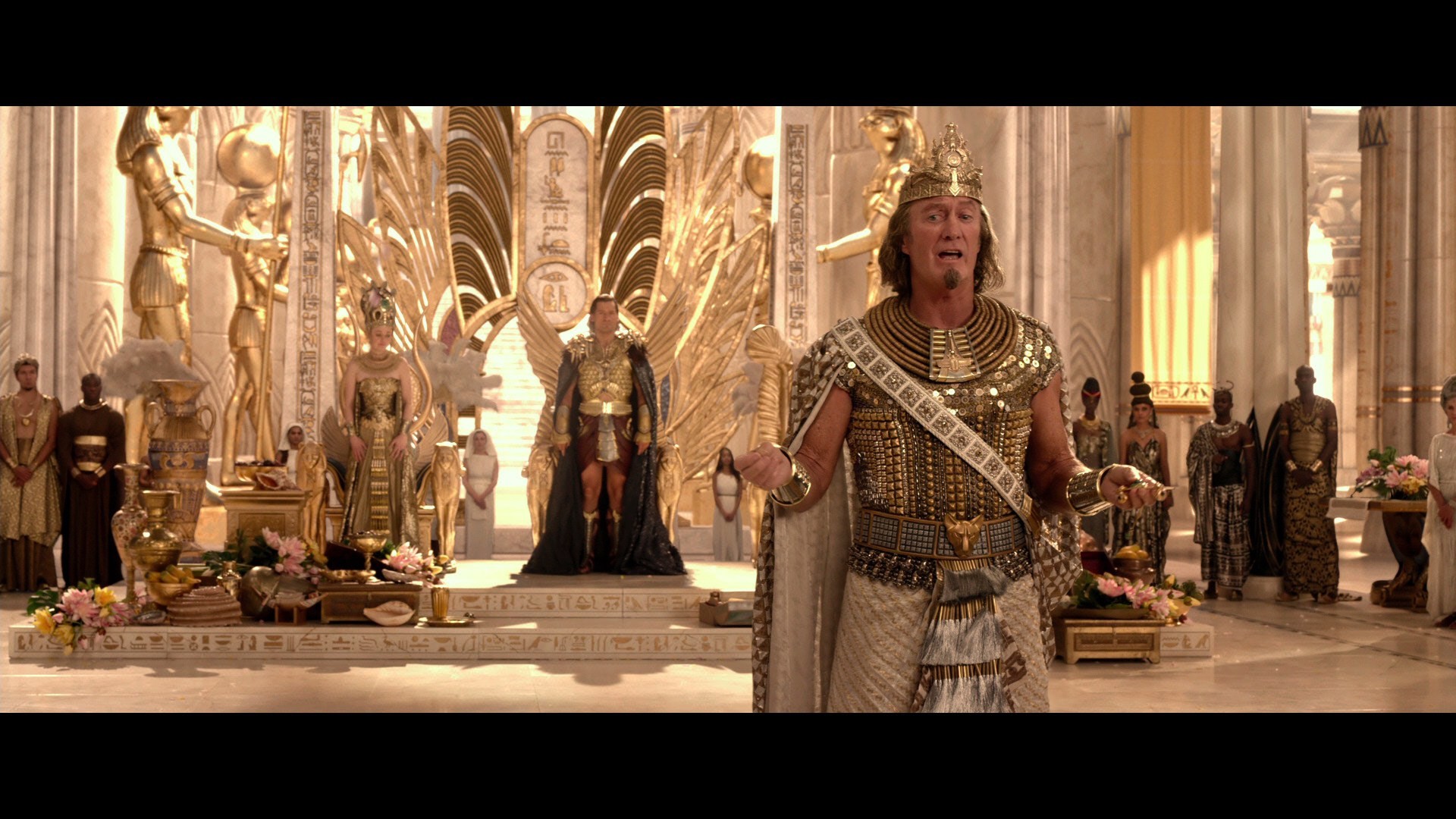

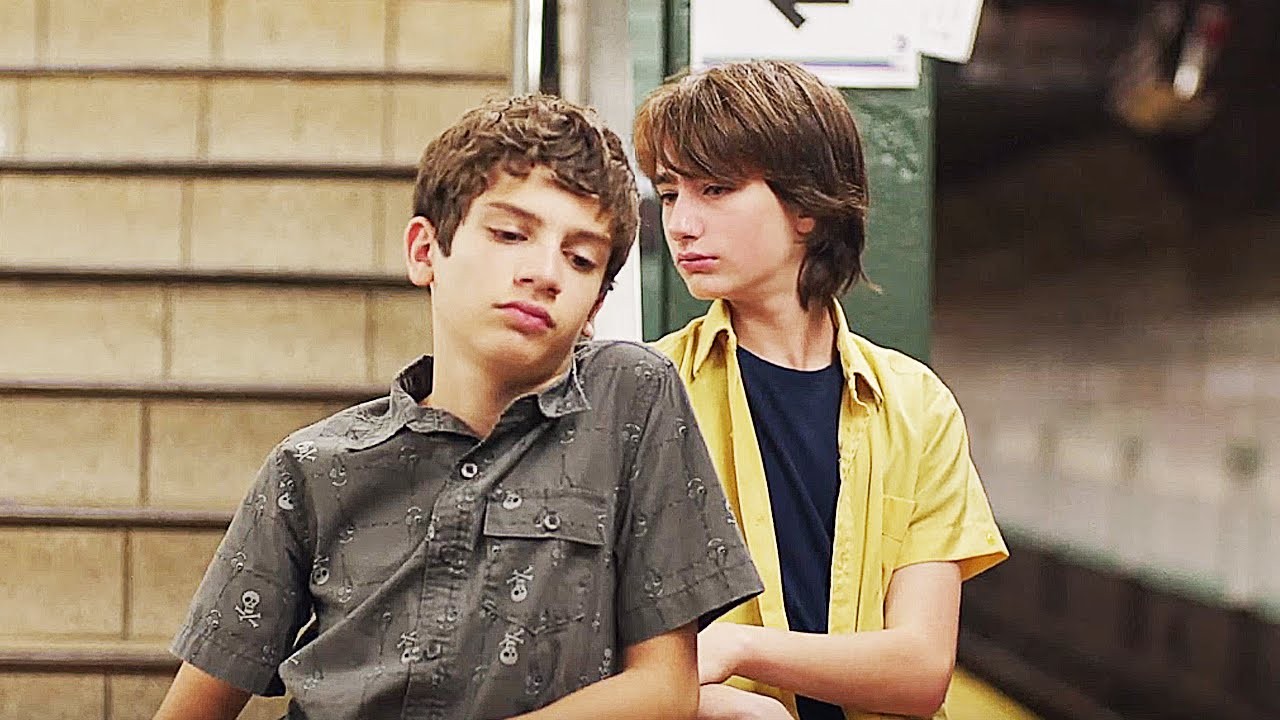

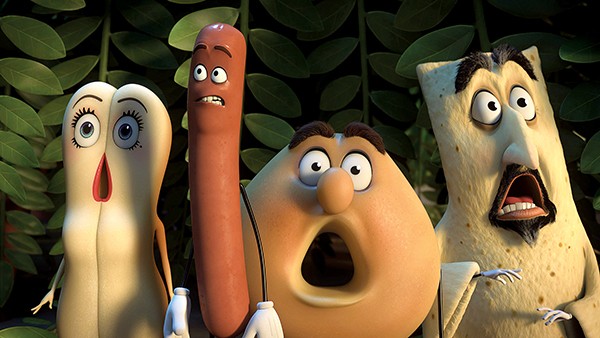

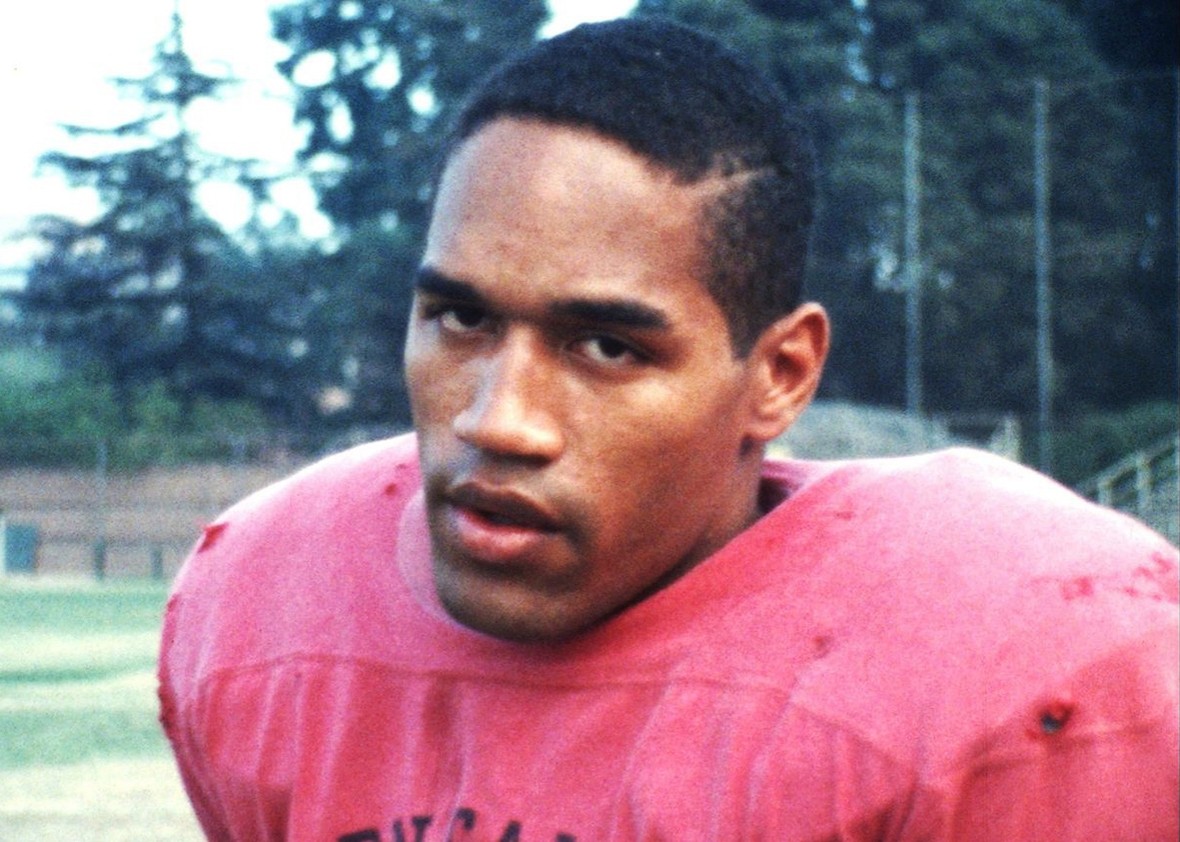
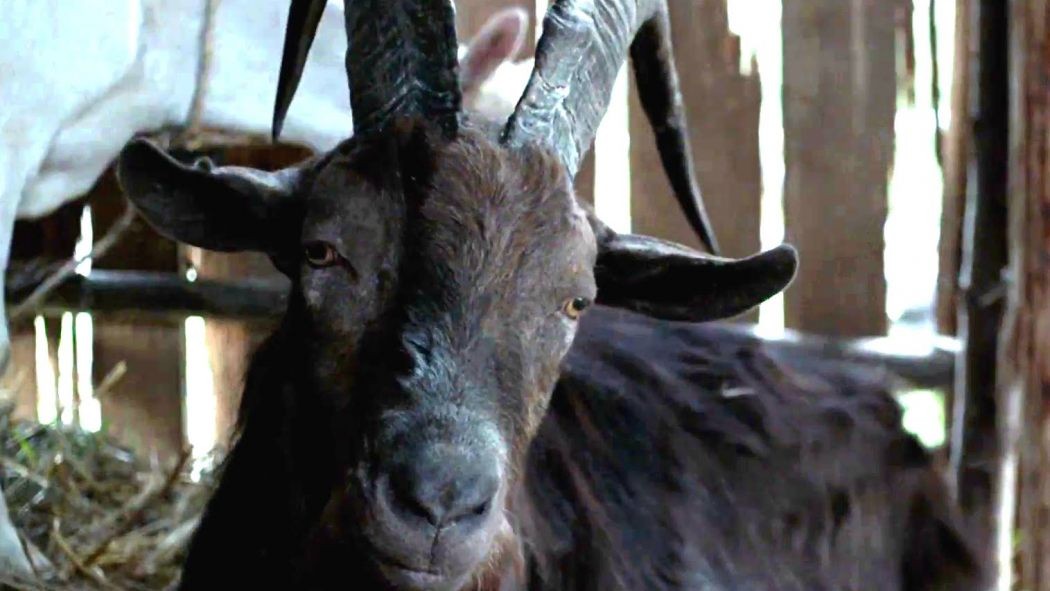
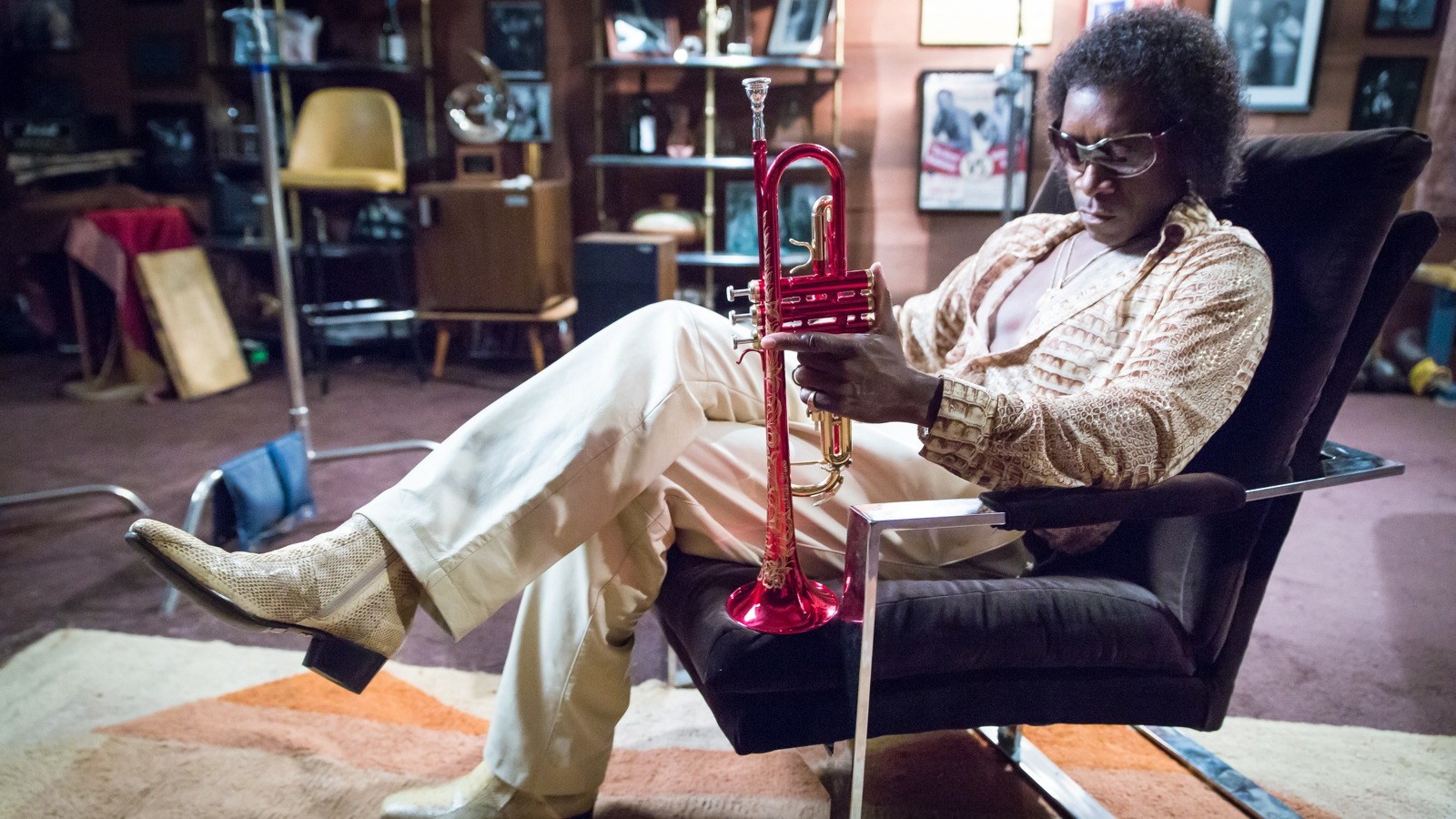
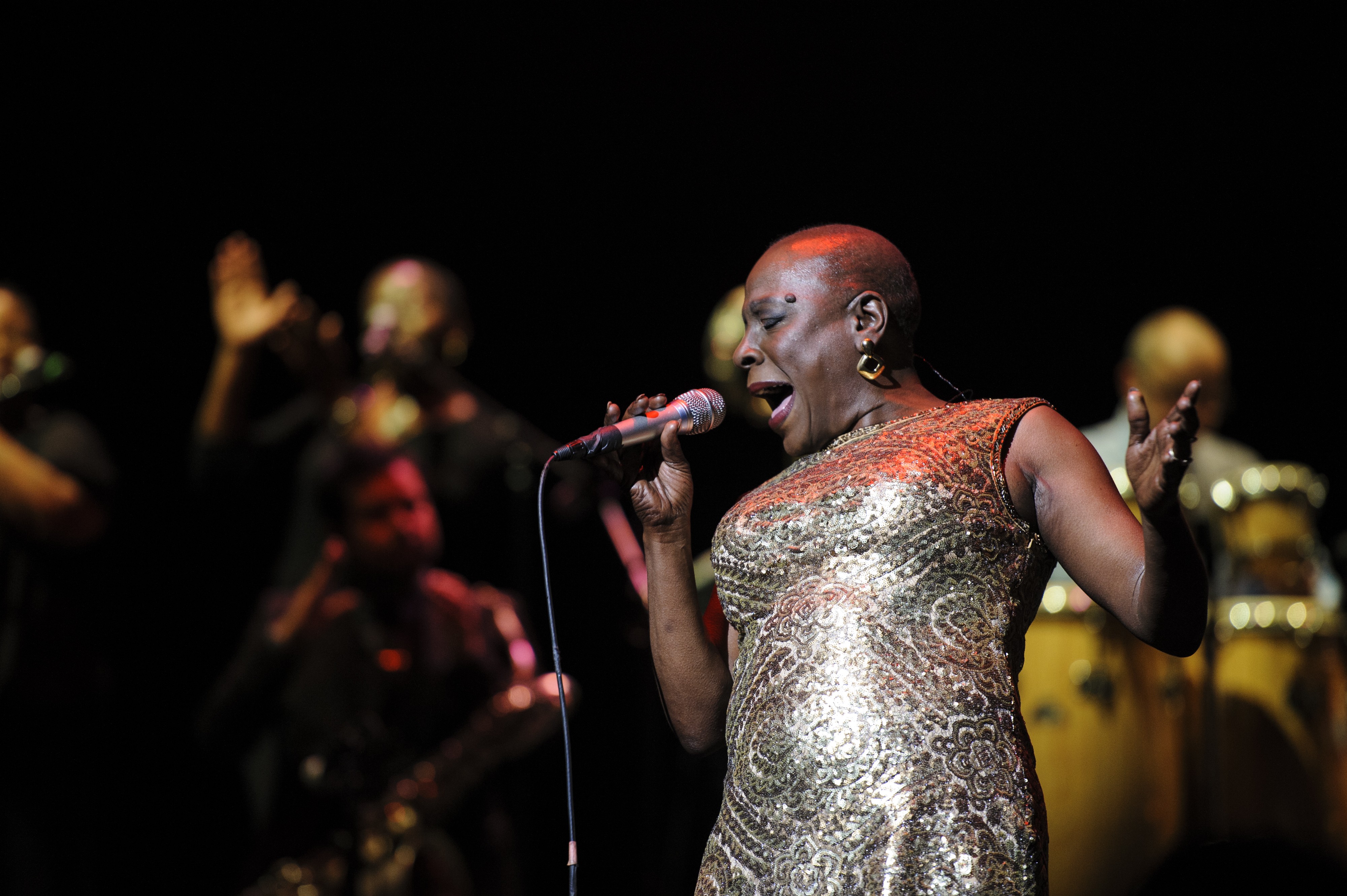
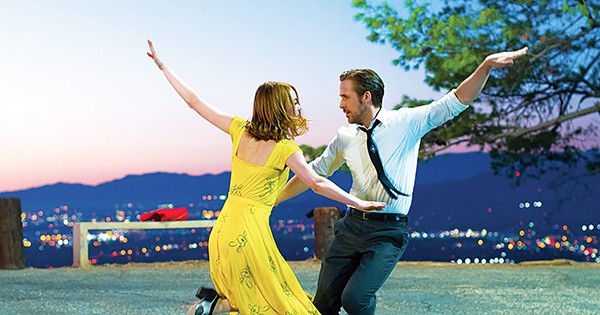
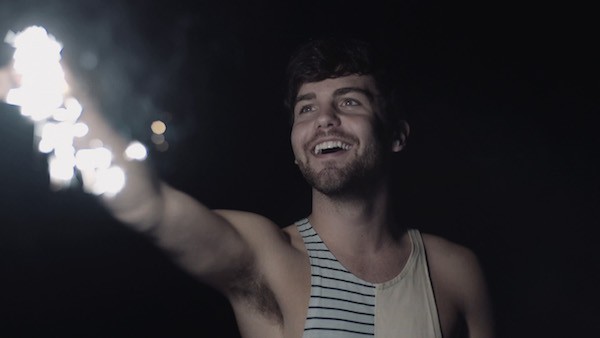
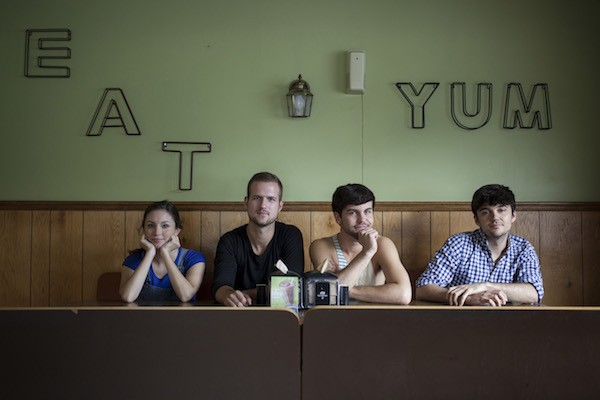 Breezy Lucia
Breezy Lucia 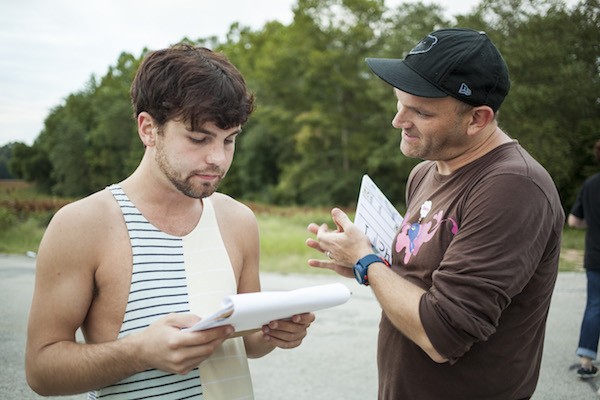 Breezy Lucia
Breezy Lucia 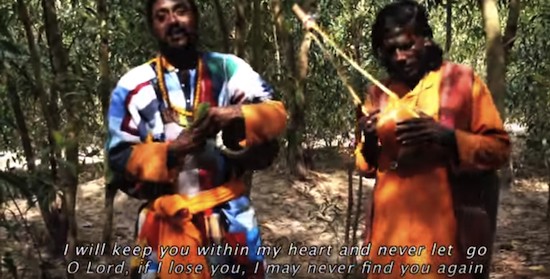
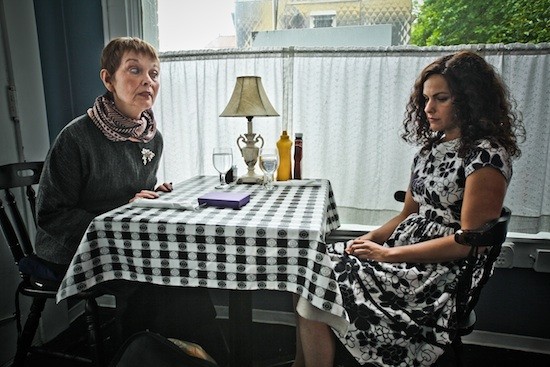
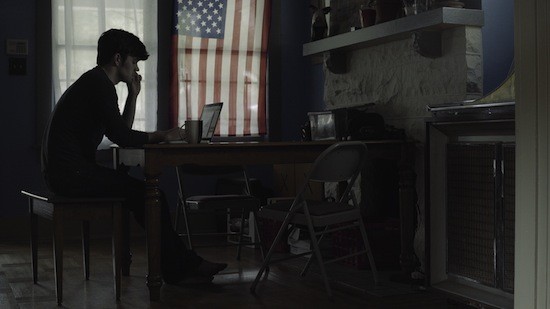
 Andrea Morales
Andrea Morales  Andrea Morales
Andrea Morales  Andrea Morales
Andrea Morales  Breezy Lucia
Breezy Lucia 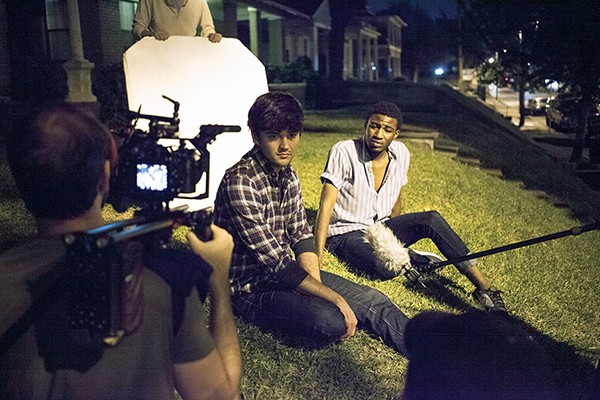 Breezy Lucia
Breezy Lucia 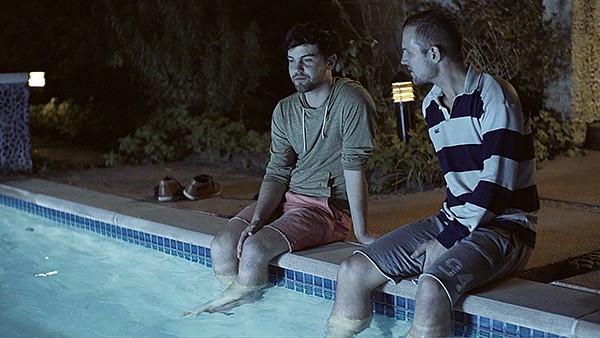 Breezy Lucia
Breezy Lucia 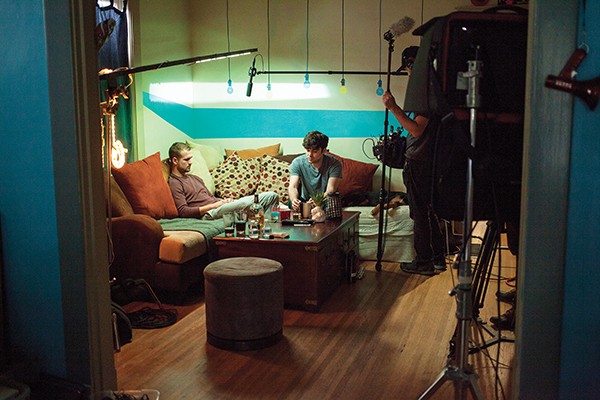 Breezy Lucia
Breezy Lucia